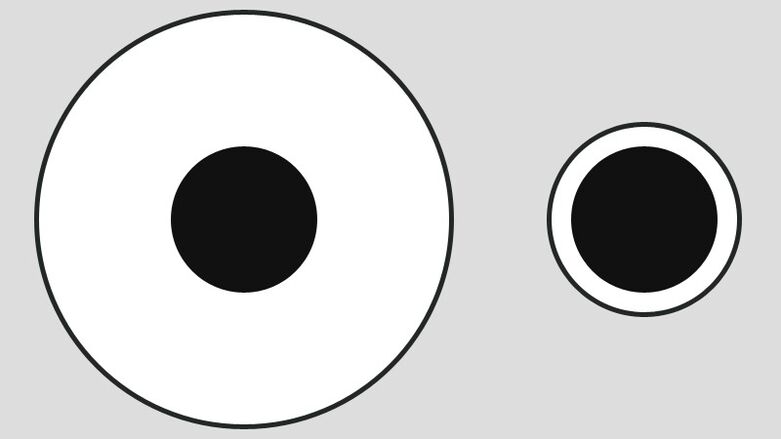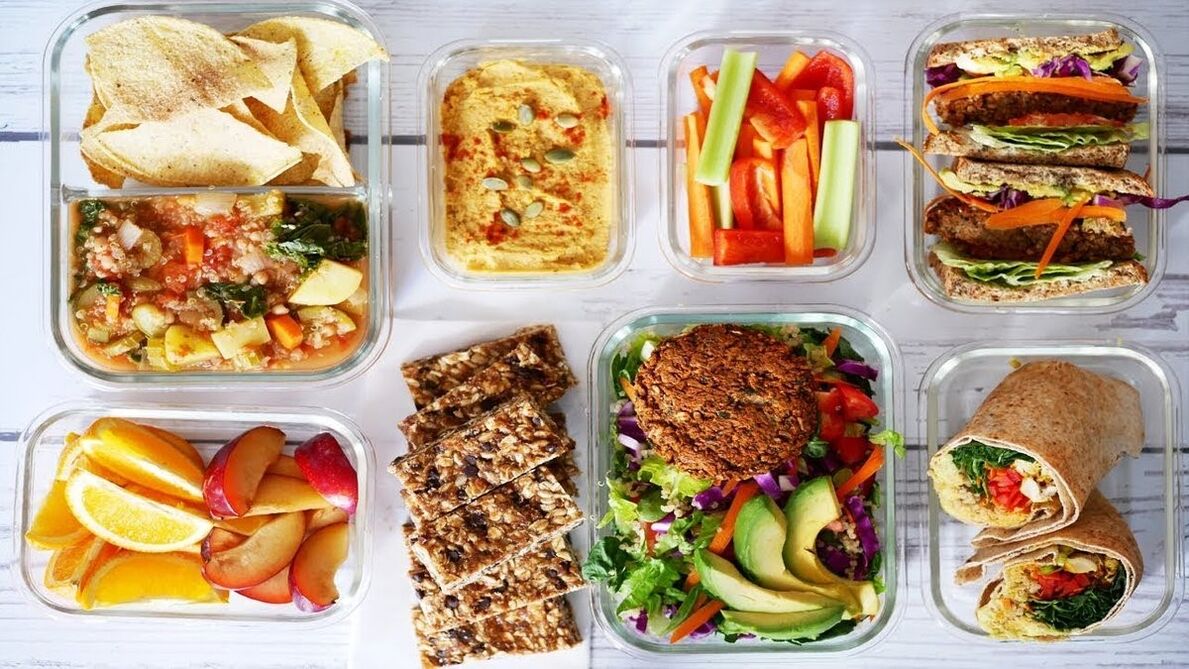
Proper nutrition for weight loss is not about strict restrictions, fasting and rejection of favorite foods. First and foremost, this is self-care, food selectivity and what makes you feel great and improve your quality of life.
The all-or-nothing principle does not work in this case. It is not necessary to try to change everything in one day and at the same time - this usually leads to breakdowns and, as a result, overeating. It is best to make small changes in stages. This will help you achieve more results in the long run. As small changes become more common, add healthier rules.
The main thing to remember is that trying to be healthy is a journey of a lifetime. You should enjoy, not stress.
Why Eat Healthy Foods?
In addition to helping you maintain a healthy body weight, eating a healthy diet that includes fruits, vegetables, whole grains, dairy and protein also has other important benefits.
Malnutrition is the most common cause of immunodeficiency worldwide. Scientists combine that many chronic diseases occur with an improper diet. For example, 38. 5 thousand men and 67 thousand women participated in one of the studies. Over 8-12 years of observation, junk food has been found to contribute to the deterioration of biomarkers, and may cause heart disease, hypertension (high blood pressure), type 2 diabetes, osteoporosis and some types of cancer.
Evidence shows that 30-35% of cancer deaths are related to diet, 25-30% are due to tobacco, 15-20% are due to infections, and the remaining percentages are due to other factorssuch as radiation, stress, physical inadequacy of activity, environmental pollution, etc.
Poor nutrition affects not only physical health but also mental health. According to the Mental Health Foundation, two-thirds of people who eat fresh fruit and vegetables on a daily basis have no mental health problems.
Therefore, it is all too important to ignore the link between good nutrition and a healthy weight, reduced risk of chronic disease, and overall health.
How long does it take to form eating habits?
Everyone is looking for a quick solution to weight loss these days, and it takes time to change habits that promote it and last for a long time. This has been confirmed by recent studies.
For a long time, it was believed that 21-28 days was enough for a stable habit to be present. This statement primarily applies to the activities of a physician named Maxwell Maltz. In the 1950s, he was a plastic surgeon and noticed that it took his patients at least 21 days to look comfortably in the mirror after surgery. In addition, he noted that people with a trapped leg or arm took the same amount of time to lose the sensation of a pantomime limb.
As a result, he developed this idea in his book Psychocybernetics, published in 1960. Subsequently, many doctors, public figures, coaches picked up the idea. Over the years, the word "minimum" has disappeared, and the 21-day period is now practically "scientific" law.
What are the new studies talking about?
Philip Lally is a health psychology researcher at University College London. In a paper published in the European Journal of Social Psychology, Lally and her analytical group tried to find out how long it really takes to make a habit.
96 people participated in the study. Everyone chose one new habit for 12 weeks and reported each day whether they followed it or not.
Some people have adopted simple rules such as "drinking a bottle of water at lunchtime. " Others have chosen more challenging tasks, such as running 15 minutes before lunch time. After 12 weeks, the researchers analyzed the data to find out how long it took for everyone to transition from starting a new behavior to doing it automatically.
On average, it took more than 2 months, or rather 66 days. But the time it takes to form a new habit can vary greatly depending on behavior, person and circumstances. In total, the study took 18 to 254 days.
How to start eating properly and what habits will help in the process of losing weight?
1. Be calorie deficient
The main idea is as old as the world -you need to burn more calories than you eat. . .
A negative calorie balance forces the body to use the accumulated reserves to provide the body with the necessary energy. This energy comes primarily from the body 's stores of carbohydrates and fats.
During the weight loss phase, the daily caloric deficit should be between 300 and 500 kcal.
In addition, it is important to monitor BJU indicators (proteins, fats and carbohydrates).
2. Reduce the amount of fat in the diet
According to the WHO (World Health Organization), priority should be given to unsaturated fats (found in fish, avocados, nuts, etc. ) and reduced consumption of saturated fats (fatty meats, butter, palm, coconut oil, etc. ). . ), as well as industrial trans fats found in baked, smoked, fried foods, convenience foods, pies, chips, biscuits, etc.
Fats should not exceed 30% of the total food consumed during a weight loss diet, which should be less than 10% saturated, and not more than 1% trans fats.
It is not necessary to give up fat completely in the diet. They are necessary for the supply of polyunsaturated fatty acids to the body, namely linoleic and alpha-linolenic acids. They are not produced by the body and are found mainly in vegetable oils and fish.
3. Get plenty of protein
Protein is the most important building block in the body and must cover about 40% of total energy needs.
When you are trying to lose weight, a diet rich in protein can make you feel full for a long time by influencing the ghrelin of the hunger hormone. Protein counteracts muscle loss during dieting. The more muscle mass, the more energy consumed and the higher the calorie requirement.
Proteins of animal origin have a higher biological value than plant proteins. However, they usually contain extra fat and cholesterol, so consumption should be moderate.
According to research, a high-protein breakfast can reduce food cravings and calorie intake throughout the day.
4. Avoid simple carbohydrates
In total, the diet should contain about 30% carbohydrates. They are usually divided into simple and complex. It takes more time to process the latter and produces less insulin, which helps you maintain a full feeling and avoid overeating.
Simple carbohydrate foods include sugars, white flour baked goods, jams, sodas, juices, and much more. For simple carbohydrates, it is best to choose the first half of the day, when blood sugar levels are low after sleep, glycogen stores are depleted and the body’s energy needs to be restored.
For foods that are high in carbohydrates, whole grains are ideal because, along with their high content of minerals and fiber, they saturate the body and promote digestion.
As a guide, you can use itHarvard Healthy Eating Pyramid. . .
5. If you can't, but you really want to
As you know, "the forbidden fruit is sweet. " The more you forbid yourself to do something, the more you need it. And the feeling of guilt, which overcomes if you succumb to temptation, makes some people give up and give up what they started.
Therefore, the first step may not be a complete rejection of the harmful product, but a reduction in portion sizes and a reduction in the frequency of its consumption. Over time, you will start to experience less cravings for these foods.
6. Avoid drinks that go fat
Avoid sodas and fruit juices.According to studies, these drinks are low in nutrients, if any, and caused excessive American consumption of 20% weight gain between 1977 and 2007.
A 0. 5 liter cola mbotella contains 240 calories and 65 grams of sugar. It has been proven that people who drink mostly water eat 200 calories a day less than those who drink other beverages.
Drink water before meals. One study found that drinking water half an hour before meals can reduce appetite and increase weight loss by 44% in just 3 months.
If you are not ready to give up unhealthy drinks immediately, use a simple trick that can trick your brain.
See the image below. Which of the lines is bigger: horizontal or vertical?

In fact, both lines are the same length, but our brains tend to overestimate the vertical lines. That is to say, in translating this knowledge to the topic under consideration, we find that taller glasses and mugs are larger and more versatile than the round and wide ones.
This way, you can drink about 20% less from thin and thin glass than from a small wide glass without feeling unhappy.
7. Eliminate alcohol
When changing to a proper diet, it is recommended to give up alcohol. Why is this necessary?
- Alcohol stimulates an increase in misery by acting on neurons, and also increases the likelihood of breakouts, unhealthy food choices and overeating.
- It negatively affects digestion, altering gastric acid secretion and its motility, leading to metabolic disorders.
- Alcohol makes water in the body deteriorate, which is why you get a lot of swelling and extra pounds on the scales in the morning.
- Drinking alcohol can damage the body's ability to recover from exercise, thereby reducing the ability to burn extra calories through exercise.
- Alcohol consumption leads to shorter sleep and lower quality, which severely affects hunger and forces people to switch from eating carbohydrates to fat. According to research, each 30-minute sleep deprivation equals 83 extra calories a day.
But it is worth clarifying that low-alcohol drinks in moderate doses do not cause significant harm to the body. 100 ml of dry red wine contains 80 kcal, 100 ml of beer contains 45 kcal. For comparison, in vodka - 230 kcal per 100 g. Therefore, a glass of dry wine or a glass of beer can be drunk once a week without harm to weight loss.
8. Eat 5 portions of fruit and vegetables
Fruits and vegetables provide fiber, minerals, vitamins and phytochemicals to the body. They serve a number of important functions in the body and are essential for healthy metabolic processes.
It is recommended that you eat at least two servings of fruit and three servings of vegetables a day (one is about 150 g). It is worth considering that excessive consumption of fruits, because they contain a lot of fructose, is not recommended in contrast to low-calorie and nutritious vegetables.
9. Pay attention to the speed of food intake
The speed at which you eat affects the amount of serving as well as the likelihood of you gaining weight. Our brains and gut are always in communication, so if your brain is pulled while you are eating, you may not get a signal about whether you are hungry or full.
Keep in mind that it takes about 20 minutes on average to get this information, so a slower meal can prevent overeating.
In addition, eating slowly is associated with more thorough chewing, which also contributes to weight maintenance. Studies comparing different eating speeds show that people who eat fast are 115% more likely to be obese than those who eat slowly.

10. Redefine the way you prepare food
The way you prepare food directly affects your health.
Common methods of preparing meat and fish are grinding, smoking, frying, deep frying. However, using such methods, a number of potentially toxic compounds (polycyclic and heterocyclic) are generated in food, which are associated with various chronic diseases, including cancer and heart disease.
Healthier methods include baking, stew, steam, etc. They do not contribute to the formation of these harmful compounds and thus make your food healthier.
11. Eat from small plates
It has been shown that the size of the cookware can affect what you eat. In large plates people add portions that are, on average, 30% larger than in standard dishes.
The brain sees the same amount of food on a large and small plate in a different way, this is called the Delbeuf illusion.

Agree, the part on the left seems pretty small. We promise you need a supplement. At the same time, the part on the right plate, filled to the top, is felt to be larger and, consequently, there is a feeling that it will be more satisfying.
12. Cut back on condiments and flavor enhancers
Salt, seasonings, store sauces, and kettles should be eaten as low as possible. Many contain sugar, coloring, preservatives, flavor enhancers and stabilizers. They have a negative effect on the functioning of the gastrointestinal tract.
WHO recommends eating no more than 5 grams of iodized salt per day (about 1 tsp). WHO Member States have set a target to reduce global consumption by 30% by 2025, which will help prevent hypertension and reduce the risk of heart disease and stroke in adults.
13. Control emotional eating.
Our relationship with food is closely linked to emotional health. We don't always take food to satisfy our hunger. Many turn to food to relieve stress or to deal with unpleasant emotions such as anxiety, sadness, loneliness or boredom. But healthier ways to deal with them can help you regain control. Serotonin levels play a key role here.
It is a neurotransmitter that helps regulate sleep and appetite, manage mood, and relieve pain. Given that about 95% of serotonin is produced in the gastrointestinal tract, and that the gastrointestinal tract is lined with hundreds of millions of nerve cells, it makes sense that the inner workings of the digestive system help not only digest food, but the feeling. also manage mention.
14. Choose healthy snacks
Snacks are one of the key factors in maintaining a healthy diet and nutrition. If you choose healthy foods that are high in protein and nutrients, snacks can be an integral part of your weight loss. Some of them can help you stay full during the day and limit your cravings for unhealthy foods.
Avoid cookies and sweets, sandwiches and glazed cheeses in favor of dried fruit, nuts, vegetable sticks with hummus, natural yogurt, fruit, etc.

15. Be selective at the supermarket
In supermarkets, there is an independent rule of the so-called "Outer Ring". The healthiest products are usually located along the perimeter - fruits, vegetables, meat, eggs, dairy products, cereals, etc. Packaged and processed food is mostly placed between the layers.
Why are processed foods harmful? Scientists are increasingly concluding that processed foods, with all their additives, sugar and fiber deficiencies, can negatively affect gut microbiota and the various bacteria that are on its walls. As a result, the risk of chronic disease increases and fertile ground is created for overeating.
In one study, consumption of processed food was associated with an increase in cardiovascular disease, in another study - with an increased risk of dying from any cause.
In addition, special attention must be paid to the labels on the products, which indicate the storage conditions and composition. Keep in mind that the ingredients are listed in descending order, from highest to lowest. Yes less is best. Make sure the product does not contain sweeteners such as sugar alcohols, monosodium glutamate (E621), formaldehyde (E240), trans fats, dyes (E102, E104, E110, E122, E124, E129), etc.
16. Do not pay any attention while eating
A new study claims that the perception of sound influences food intake on eating habits. The study involved two groups of people who ate crispy food, one with white noise headphones and the other without. As a result, participants who were distracted by the white noise heard less of the sound of the food, causing them to eat more than those who heard the crunch.
Another interesting experiment, the result of which was published in 2016, claims that so-called "visual hunger" can scroll through social networks where you follow culinary publicity or various grocery stores. That is, even if you do not need food physically, the body sends a signal to the brain using the hunger hormone you are trying to eat.

The main thing to remember about a healthy relationship with food is: "Food is not the enemy. " Instead of focusing on the things you should not eat, think about the healthy, fresh and tasty things you can add to your meals. to diversify your diet. Do not try to change everything at once, gradually forming new healthy habits and without stress.
As you know, a balanced diet is at least 50% of the result in the process of losing weight! Without it, even the most competent trainers will not give the expected results.














































































